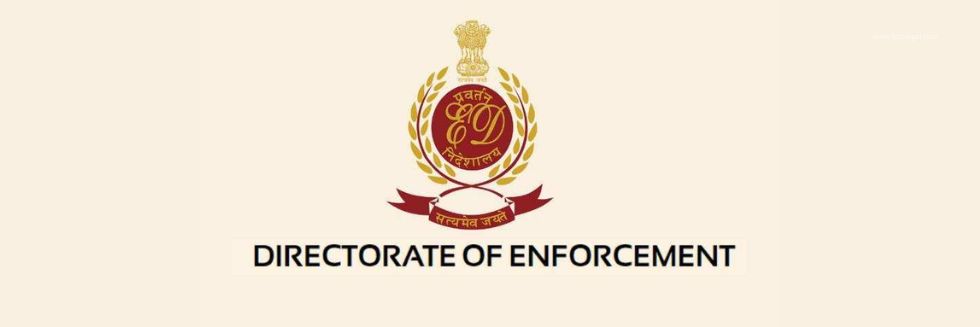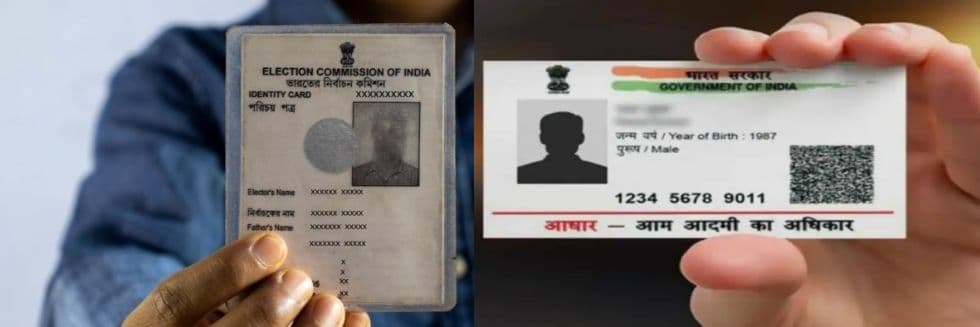Introduction
The Directorate of Enforcement, commonly referred to as ED, is a diverse organization in India that focuses on investigating offences pertaining to money laundering and violations of foreign exchange laws. The Department of Revenue is a significant component of the Ministry of Finance, serving under the esteemed Government of India. The Directorate of Enforcement plays an important role in preserving the economic integrity of the country by diligently enforcing different laws and combating economic crime.
The Directorate enforces several acts, including:
- The Prevention of Money Laundering Act, 2002 (PMLA) is a legislation aimed at dealing with the issue of money laundering. This statute was enacted with the intention of addressing concerns related to money laundering and facilitating the confiscation of property associated with such activities. The Directorate plays a crucial role in upholding the provisions of the PMLA by conducting investigations to trace assets derived from proceeds of crime, provisionally attaching property, and ensuring the prosecution of offenders and confiscation of property by the Special court.
- The Foreign Exchange Management Act, 1999 (FEMA) is a legislation that deals with the management of foreign exchange in an in-depth and effective manner. This civil law was enacted with the aim of consolidating and amending the laws related to facilitating external trade and payments, as well as promoting the orderly development and maintenance of the foreign exchange market in India. The Directorate plays a crucial role in overseeing investigations related to potential violations of foreign exchange laws and regulations. Additionally, it is responsible for making fair judgments and applying appropriate penalties to individuals or entities found to have contravened the law.
- The Fugitive Economic Offenders Act, 2018 (FEOA) is legislation that addresses certain economic offences. This law was enacted with the aim of discouraging economic offenders from avoiding the legal process in India by staying outside the jurisdiction of Indian courts. The law empowers the Directorate to take possession of the assets of economic offenders who have fled from India and are subject to arrest. Additionally, the law permits the confiscation of their properties by the Central Government.
Powers of ED in India
The following are the Primary powers of an ED officer in India:
- The ED is tasked with conducting investigations related to offences under the Prevention of Money Laundering Act, 2002 (PMLA). This process includes the tracing of assets derived from proceeds of crime, provisionally attaching the property, and ensuring the prosecution of offenders and confiscation of the property by the Special court.
- The ED is entrusted with the task of conducting investigations into potential contraventions of foreign exchange laws and regulations as per the Foreign Exchange Management Act, 1999 (FEMA). This involves the process of resolving disputes and applying appropriate repercussions to people who are discovered to have been violating the law.
- Looking into the matter of individuals who are involved in economic offences who are currently evading legal authorities. The Fugitive Economic Offenders Act, 2018 (FEOA) empowers the ED to handle cases of individuals who have evaded legal proceedings in India and have been issued arrest warrants against them. It also allows for the confiscation of their properties, which are then transferred to the Central Government.
- Executing Search and Seizure Operations the ED has been granted the authority to carry out searches and raids, as well as make arrests, in accordance with the provisions of the PMLA.
- Ensuring the security of India’s financial system, The ED plays a crucial role in ensuring the integrity of India’s financial system and safeguarding foreign transactions taking place within the country through schemes such as the PMLA and FEMA
How Adjudication of a Case Takes Place in ED?
There are several steps involved in the adjudication of ED:
- Issuing a notice, to determine whether an individual has violated any defined contraventions under Section 13 of the Act, the Adjudicating Authority will issue a notice to that person. The notice will require the person to justify within a specified period (which will be at least ten days from the date of service) as to why an inquiry should not be conducted against them.
- ED carries out investigations related to potential violations of FEMA provisions and money laundering offences under the PMLA after that Property is Attachment if an individual is found to have “proceeds of crime,” the ED has the authority to temporarily attach a property under Section 5 (1) of the PMLA.
- The Adjudicating Authority hereby confirms the attachment mentioned earlier, in accordance with Section 8 (3) of the PMLA. Subsequently, the Government aims to proceed with the final confiscation under Section 9 of the PMLA.
- Those who have been involved in crimes related to money laundering are subject to prosecution by the ED.
Prominent Cases Under Enforcement Directorate (ED)
- The Directorate of Enforcement (ED) has attached 31 immovable properties in Goa worth Rs. 39.24 Crore (circle rate) as part of a money laundering investigation against individuals involved in illegal property acquisition. ED began investigating Vikrant Shetty, Mohammed Suhail, Rajkumar Maithi, and others for illegally seizing immovable properties in Goa, based on FIRs lodged by Goa Police. A Special Investigation Team (SIT) of Goa Police was created by the government to probe the situation. The ED investigation found that the accused individuals fraudulently purchased immovable properties in their names or those of their associates/relatives. The defendants fabricated papers in land records to prove their forefathers owned immovable assets. They used fake papers to alter their identities in property records and create succession deeds/inventories. Some of the accused sold unlawfully obtained houses to customers from Goa and other states.
- On November 21, 2023, the Directorate of Enforcement (ED) arrested N. Bhasurangan, former President of Kandala Service Co-operative Bank, and his son Akhiljith J.B in connection with an ongoing investigation under the Preventions of Money Laundering Act (PMLA), 2002. The investigation involves a fraud case at the bank. N. Bhasurangan, the bank’s president, was instrumental in authorizing unlawful loans.
- The ED investigated many FIRs filed by the Maranalloor Police Station, Trivandrum against the President and Secretary of Kandala Service Co-operative Bank. The ED found various bank management violations. President N. Bhasurangan led the Bank’s board. Preliminary investigations found Rs. 57 Crore in anomalies, causing significant asset impairment for the bank. The ED inquiry found that Kandala Service Cooperative Bank loaned Rs. 2.04 Crore to Maranalloor Ksheera Vyavsaya Sangam Limited, with N. Bhasurangan serving as the Society’s manager. Further investigation revealed illegal loans of many crores were offered to family members and relatives by mortgaging the same houses. The Kandala Service Co-operative Bank did not commence collection actions for unpaid debts taken out by N. Bhasurangan’s family and relations during his presidency. N. Bhasurangan and his son Akhiljith J.B were arrested on 21.11.2023 and appeared before the Special Judge (SPE / CBI) – I (Special Court for PMLA Cases) in Ernakulam, Kerala, on 22.11.2023. Honourable Court grants ED custody for 3 days till 24.11.2023.
- The Foreign Exchange Management Act (FEMA) Adjudicating Authority issued Show Cause Notices to M/s Think & Learn Private Limited and Byju Raveendran for violating FEMA provisions worth Rs. 9362.35 Crore, based on a complaint filed by the Directorate of Enforcement (ED) under sub-section (3) of section 16 of FEMA, 1999. ED began an inquiry based on concerns against M/s Think and Learn Private Limited’s foreign investment and business activity. The corporation was accused of violating FEMA, 1999 by making considerable overseas remittances and investments abroad, resulting in revenue loss for the Indian government. The ED searched M/s. Think and Learn Private Limited and Byju Raveendran’s residence on 27.04.2023 and 28.04.2023, seizing documents related to the company’s investments and overseas investments. In the ED probe, statements of Byju Raveendran and the Chief Financial Officer of M/s. Think and Learn Private Limited were recorded. The investigation revealed that M/s. Think & Learn Private Limited & Byju Raveendran violated FEMA by not submitting import documents, not realizing export proceeds, delaying FDI filings, and not filing documents against company remittances.
Conclusion
Therefore, it is the duty of the legislative body to provide enough openness when filing this closure report, to restrict any potential abuse of the powers held by the ED. To fulfil their role as law enforcement officials, the adjudicating authority must strictly adhere to the principles of the law when dealing with cases that directly affect the victim’s basic rights as outlined in Article 14 of the Constitution. To prevent the abuse of the rights of innocent victims, lawmakers should adopt a proactive approach and enforce stringent measures against law enforcement agents who commit legal violations.
This article is written and submitted by Diwakar Prakash Garg during his course of internship at B&B Associates LLP. Diwakar is a 4th year BBA LLB student at UPES, School of Law, Dehradun.







